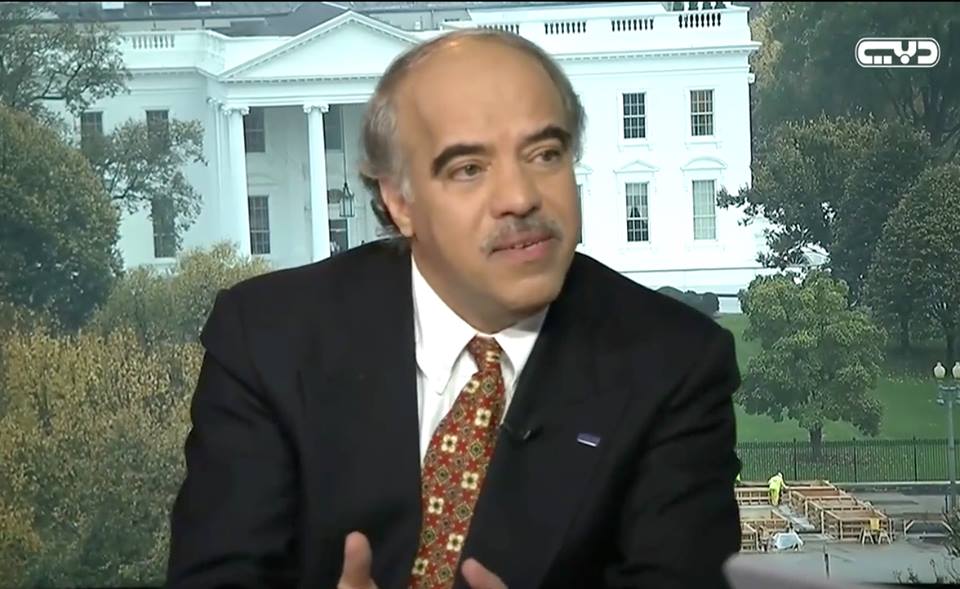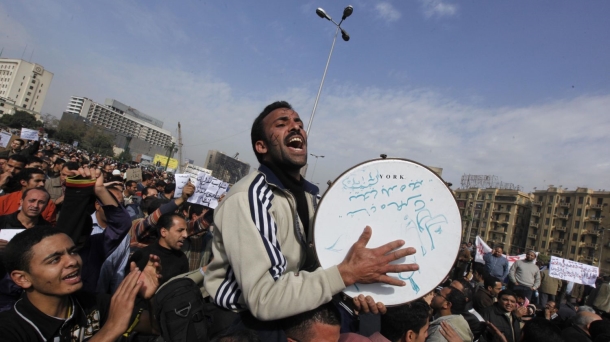
North Africa and the Middle East are struggling with their present; let alone how to shape their future. The promise of the 2011 uprisings has turned into growing malaise and widespread deception by the poor performance of Islamist, secular, military, nationalist, and other brands of Arab governments. After seven years of high expectations, the Arab story of reform and democratization has become a daunting cliffhanger. The main question now is how we got here. Why there is so much concentration of conflict and violence in this strategic region located at the heart of the world with enormous natural and human resources. Why is there still dire shortage of democratic steps and civility in the Arab public discourse across the region? One good example in Saudi Arabia, Tweeter has served as the best weapon of mass stigmatization of Qatari officials and their allies. Another intriguing question; what prevents Arab societies from forging a smooth path to modernity, welfare, and democracy? Are there any real prospects of an Arab age of enlightenment to help address this difficult Arab pregnancy of democracy?
The following paper is part 2 of a lecture delivered by Mohammed Cherkaoui at Friedrich-Alexander-University Erlangen-Nürnberg in Germany October 25th. In part 1, he discussed the complexity of the open-ended Arab conflicts and the alarming religiosity as the new geopolitics. Part 1 can be accessed through this link:
http://studies.aljazeera.net/en/reports/2018/12/3-dilemma-religiosity-peace-realism-war-regressed-identities-middle-east-part-1-181203115851188.html
Let us address the other side of the equation: the transformation of Arab states; and how the political and financial elites seek to maintain their power monopoly.
New Arab Realpolitik
North Africa and the Middle East are enduring two parallel highly glorified wars. One declared by religious fanatics and jihadists who believe in the might of the sword and home-made explosives, and expect a divine blessing for their pursuit of restoring the ‘golden Islamic age’, in reference to the times of prophet Mohammed and four caliphs Abu Bakr, Umar, Uthman, and Ali. This age which expands from the year 610, when the prophet received his first revelation from God, and the death of the fourth caliph Ali ibn Talib in the year 661, remains idealized and often romanticized as the purity of Muslims and good implementation of the divine message. This is a common theme among all kinds of Islamists from Tehran to Tetouan and from Samarra to Saouira.
In contrast, Arab governments have waged a counter war within their societies. This counter war has become so sacred within the growing security paradigm, as promoted by several governments in Egypt, Syria, Lebanon, Tunisia, and Algeria, which have adopted less religiosity of the public sphere and state. The holiness of this counterterrorism war derives from the semi-sacred imperatives of protecting the national security and eradicating terrorism and other forms of extremism in the region. It started with the well-orchestrated show of “Military and People together” scene amidst the protests in Tahrir square in January and February 2011. Late US Senator John McCain visited Cairo at the peak of the crisis and stated he wanted democracy in the region, not out of 'some misplaced moralism', but because the resultant stability would help the United States. He said, "The greatest guarantee of stability is democracy ... Our national interests demand it (in the Middle East)", he said. (1) At the same time, John Chipman, Director-General of the International Institute for Strategic Studies, saw the idea that the only alternative to Mubarak was Islamist as a "totally out of date mantra. (2) Moreover, Sisi’s coup in Egypt in June 2013, and has energized a keen interest among other Arab leaders and profiteers of civil wars to secure their survival at all cost.
The new Arab realpolitik has nurtured a new trend of Arab Machiavellism in dehumanizing opponents as ‘terrorists’ or ‘foreign entity agents.’ A good example is how Al-Assad regime in Damascus has squeezed his foes in the Syrian opposition and diaspora as well into this negative label. Sisi has famed his second electoral campaign last march around the national security imperative and eradication of the so-called ‘terrorist cells in Sanai’. Last August, the Egyptian army announced it had killed 52 individuals perceived as"highly dangerous terrorists" in North Sinai province as part of the ongoing "Sinai 2018" anti-terror campaign.(3)
On the 2nd of the month, my friend Saudi journalist Jamal Khashoggi was killed after he entered the Saudi Consulate in Istanbul as a punishment for his critical opinions of the current Saudi line of politics. He was a moderate intellectual who pushed for critical thinking and freedom of expression. He wrote October 31, 2017, “Prince Mohammed is right to go after extremists. But, he is going after the wrong people. Dozens of Saudi intellectuals, clerics, journalists, and social media stars have been arrested in the past 2 months — the majority of whom, at worst, are mildly critical of the government… How can we become more moderate when such extremist views are tolerated? How can we progress as a nation when those offering constructive feedback and (often humorous) dissent are banished? (4)
In Egypt, more than forty thousands of activists and journalist remain under arrest with no due process before the national courts of justice. In the Maghreb, Moroccan editor-in-chief, Taoufik Bouachrine, remains in prison in Casablanca while facing a host of charges including human trafficking, exploitation of people in need, and abuse of power for sexual purposes. These are recent examples of how most Arab regimes have relinquished their sense of moral politics in silencing voices of enlightenment and modernity. They are no longer concerned with possible criticism, or the possibility of being reprimanded, by Western countries, especially the United States, whose foreign policy had been saturated, for decades, with the rhetoric of protecting human rights and spreading freedom into undemocratic regimes in the region and beyond.
As one Arab analyst argued, realpolitik is a polished name for political immorality. “waging of ruinous punitive wars, military incursions, annexing territories of bordering countries and other belligerencies, “he wrote, “ are excusable to most politicians and analysts as long as they are executed in the name of fighting foreign evil forces, or to extirpate alleged WMDs, or to ensure ethnic privileges for compatriots. (5)
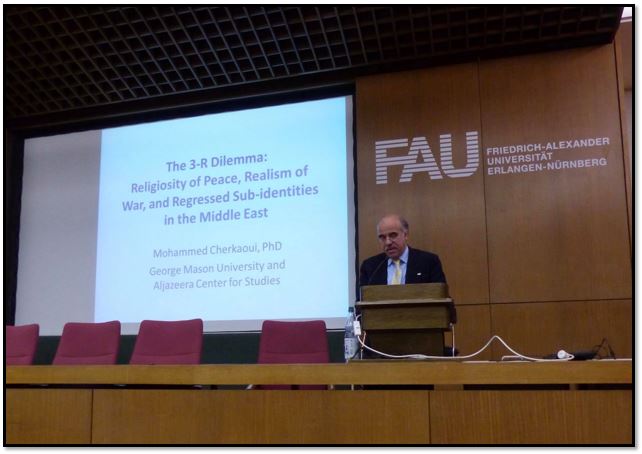 |
| [Aljazeera] |
Let us try to contextualize this Arab new Machiavellism. The Riyadh summit held in May 2017 between Donald Trump and leaders of fifty Arab and Muslim nations has solidified the centrality of counterterrorism in contemporary international relations. The eradication of ISIS, or Daesh, and other extremists groups in the region, has been the top priority of the Trump’s strategy in the Middle East. Consequently, many Arab governments have manipulated this counterterrorism discourse and the protection of national sovereignty to justify their illegal crackdown on progressive movements and imprisonment of activists. Egypt, Syria, Saudi Arabia are good examples.
In his recent address at the United Nations, Trump sounded rather as an advocate of free-style world politics. He favored states to go separate ways under the banner of protecting their sovereignty. He asserted, “America is governed by Americans”, and “it is up to the nations of the region to decide what kind of future they want for themselves and their children. (6) In the battle for legitimacy and popular representation, the lines between activism, terrorism, and authoritarianism have become blurry. The use of force remains a necessary strategy to justify the claimed pursuit of peace, as ideologues on both sides would argue. The whole causality of this escalation is survival. In his paper essay “Realpolitik, Failing States and the Arab Citizen” published by the London-based Muslim Institute, Mohammed Moussa points out that “perceived existential threats to the status quo in the Middle East were at the top of domestic and foreign policy agendas. The backlash against Islamists is accompanied by the rolling back of the victories of the Arab Spring, motivated by the fear of the domino effect of democratic transitions, whether revolutionary or reformist. (7)
Now, Egypt, Syria, and Libya are examples of these parallel wars. Most Arab governments have failed in their socio-economic policies. The rate of unemployment remains high between 15 and 20 percent across the region. These governments do not take responsibility for neglecting the basic human needs of their young-majority populations, which adds not only to the complexity of the ongoing civil wars, but turns them into protracted social conflicts (PSC) borrowing the language of late conflict theorist Edward Azar. While developing his new PSC theory in 1990. He argues, “Protracted social conflicts occur when communities are deprived of satisfaction of their basic needs on the basis of the communal identity. However, the deprivation is the result of a complex causal chain involving the role of the state and the pattern of international linkages. Furthermore, initial conditions (colonial legacy, domestic historical setting, and the multi-communal nature of the society) play important roles in shaping the genesis of protracted social conflict. (8)
Consequently, social malaise has spread deeply into the hearts and minds of the majority of the Arab youth. One anecdotal recent statistic showed that 69 percent of the Moroccan youth are anxious to leave their country and seek better opportunities abroad. A sizable number of migrants end up losing their lives in the so-called ‘death boats’, while trying to cross the Mediterranean. Moreover, “the process of protracted social conflict deforms and retards the effective operation of political institutions”, as Azar explains, “It reinforces and strengthens pessimism throughout the society, demoralises leaders and immobilizes the search for peaceful solutions. We have observed that societies undergoing protracted social conflict find it difficult to initiate the search for answers to their problems and grievances. (9)
The mix of failing socio-economic policies, religiosity, and realpolitik, has led to significant shifts in the societal cohesion within the multi-communal Arab societies. Since the mid-1990s, there has been deepening disarticulation between state and society. As Azar’s asserts, “With the state usually dominated by a single communal group or a coalition of a few communal groups that are unresponsive to the needs of other groups in the society. (10) This brings us to the third theme of this presentation: regressed Arab sub-identities
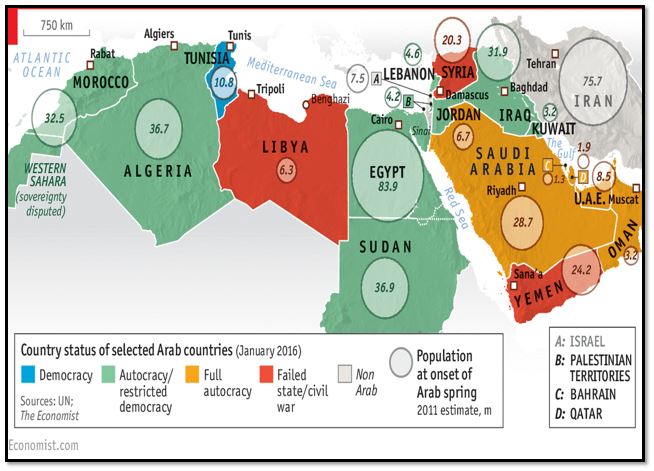 |
| [United Nations] |
Regressed Sub-identities
In 2006, an Asian scholar published an essay entitled “Who Am I? The Identity Crisis in the Middle East”. He wrote, “Each state would have to evolve an identity that is neither parochial nor confessional, but rather a territorial identity that recognizes and encompasses their individual distinctness and variations. Each state would have to recognize the need for and eventually evolve an inclusive identity. (11) He was referring to a post-colonial age of an Arab identity formation. Since the eighties, there was a heated debate about an Arab crisis identity, while societies in the region were taken by surprise by the arrival of globalization. French Arabist and sociologist Jacques Berque (1910-1995) noticed then the Arabs were still trying to restore their ‘personality’.
Fast forward to the present, German analyst Stefan Buchen raises some provocative questions: “Does an Arab identity survive? What about Arab culture? In view of the political and social downward spiral, all of this is now at stake. Civil wars can be ended, political expectations of freedom and justice can theoretically be fulfilled a little later. But is the devastation in reality not already so profound, so as to prevent the new formation of a contented Arab society? (12)
These reflective questions are valid since they call for an assessment of the overall transformation of Arab societies. I argue there is a complex crisis of identities and sub-identities across the region amidst various tendencies of Wahhabism, Salafism, Brotherhood, secularism, modernism, and all other fifty shades of religiosity in between. In his book “Islam vs. Islamism: The Dilemma of the Muslim World”, historian Peter Demant explains how certain Islamist puritanism has deepened in the region. He wrote, “Psychological mechanisms facilitate the transition to Islamism. People look for an ideological compass, but not in isolation. The defeat of rival ideologies raises the psychological and social price for those who would embrace such discarded alternatives as Marxism or liberalism… Material riches are scorned in favor of dedication to God. Islamism returns to the non-material, pre-capitalist values of honor, obedience, solidarity, and mutual aid. Islamic puritanism strengthens the ideological defenses against the permissive West’s temptations. (13)
Instead of the solidification of a Pan-Arab identity in an upward mode, as Nasserism, Baathism, and other doctrines of Arab nationalism aspired to achieve in the sixty-eight years, the post-uprisings era has witnessed a downward swing toward alternative sub-identities. The construct of a well-integrated Arab identity has lost momentum as local politics has nurtured the narcissism of small differences. As you may recall, this concept of narcissism of small differences can be traced back to the works of psychoanalyst Sigmund Freud and anthropologist Ernest Crawley in the early twentieth century.
Now, let’s see how Arabs identify themselves: Iraqis no longer perceive each other as Iraqis; instead, they are either Shias, Sunnis, Kurds, Yazidis, or other small denominations. Palestinians have also broke their identity tent to emerge as Fathawis (pro-Fatah) or Hamsawis (pro-Hamas). In most cases, the Egyptians are identified as either Ikhawani or Ilamani (pro-Muslim Brotherhood or secularist). A similar split of identity is creeping into the discussions among the elite and diaspora in North Africa. There is an unsettled debate in Morocco about the real anthropological origin of the Moroccan identity: is it Arab or Amazigh if we consider the existence of Amazigh tribes in North Africa before the arrival of the first Muslim envoy General Oqbah ibn N?fi during the reign of Caliph Omar in 644 in the region? As you can tell, I have avoided the word ‘Berber’ for the sake of being historically correct.
In short, this implosion of the Arab identity has led to several ‘we’/’they’ dichotomies. This inward transformation of the presumed Arab identity seems to correlate with several deceptions. Social psychologist and founder of the Center for the Study of Mind and Human Interaction (CSMHI) at the University of Virginia, Vamik Volkan, has written extensively about this eclipse of the national identity at times of crises and wars. In one of his lectures entitled “Large-Group Identity, Large-Group Regression and Massive Violence”, he focused on ethnic, national, or religious large groups, and the role of leaders. His argument derives from the imagination of “a canvas extending from the pole out over the people, forming a huge tent. This canvas represents the large-group identity. (14) He concludes “essential ethnic, national or religious large-group activities center around maintaining the integrity of the large-group identity, and leader-follower interactions are just one element of this effort. (15)
Volkan relates this identity shift to what ancient Greeks used to call ‘Megali Idea’, or ‘Great Idea’, as a political ideology with some cultural amplifiers. He wrote, “Such political ideologies may last for centuries and may disappear and reappear when historical circumstances change.(16) While studying how the large group identity deals with various threats including the group’s enemy, he found 20 signs and symptoms of societal regression. (17)
Why have I brought up Vamik Volkan? His fieldwork has proved two interesting points: a) the split between ‘us’ and ‘them’ is a sign of societal regression, and b) the correlation between regression and mourning of large groups. He argues societies mourn like individuals; “mourning over the loss of loved ones, lands, and prestige after a war or war-like situation will appear in large-group processes on a societal level. For example, after a major shared trauma and loss at the hand of enemies, a political ideology of irredentism —a shared sense of entitlement to recover what had been lost—may emerge that reflects a complication in large-group mourning and an attempt both to deny losses and to recover them. (18)
These two processes occur under what he terms as massive introjections, in reference to “the population’s “eating up” political propaganda without making much of an effort to analyze whether what is coming into their inner world is poisonous or not. (19) The notion of massive introjections captures the cultural war between two parallel public discourses in the region. It has derived from the cultural war between the proponents of Islamism and the protagonists of secularism over a century. The split of Arab identity is not a new phenomenon in recent years. In my obituary of Moroccan philosopher Mohamed Abed Al-jabri in May 2010, I wrote a short piece with this title: “‘Muslims’, ‘Islamists’, and ‘Islamics’: The Dilemma of ‘Sacred’ Interpretation”.
Let me quote myself, “In addition to several inter-and/or intra-state conflicts expanding from Morocco to Indonesia, most Muslim countries have been engulfed in a mega-conflict of the 21st century between Islamist minorities and Islamic majorities over the ‘best’ course of governance. From a parallel perspective, Western societies have wrestled with the disparities among millions of Euro-Muslims and American Muslims across the labels of ‘moderate’, ‘militant’, ‘radical’, ‘extremist’, or ‘terrorist’ Muslims.
The irony is that the same Salafi (fundamentalist) approach, that was dominant in the discourse of the Arab ‘nahda‘ (renaissance) movement at the beginning of the 20th century, has come back stronger, a century later, as a radicalized and polarizing force of exclusion along distant interpretations of religious texts. According to Al-jabri, this extremism justifies itself in economic disparities, democracy, and other things. He also argued that the Arab mind has failed to achieve its ‘scientific revolution’ because it has internalized the systems of religious interpretation. Accordingly, the gap has been growing between the ‘Islamists ‘, as the guardians of tradition trying to produce a straight line between the present and the Prophet Mohamed’s era, and the ‘Islamics’ as the importers of the Western model of modernization with different variations.
Since they decided to enter the ballots in the last two decades on the principle of political ‘purity’, Islamist elites have tried to create a sense of new collectiveness around the notion of the ‘exclusive’ Umma (nation), while developing counter-narratives of ‘morality’, ‘justice’, and ‘organic’ connection between the mosque and the state, vis-à-vis others labeled as ‘less devoted’ Muslims. The struggle for an anti-colonial Islamist/nationalist culture by the Muslim Brothers in Egypt since 1928, and their affiliations throughout the Middle East and South Asia, has transformed into a contestation of the political identity of Muslims.
Subsequently, Freud’s reflection about the narcissism of minor differences has been full swing as a search for self-identification among Muslims from all streams. Now, most of them pray in either Sunni or Shia mosques, send their children to separate schools, and bury their dead in exclusive cemeteries. These tendencies have brought to the fore some fragmenting, backward-looking, and exclusive identity politics, which at best involve psychological discrimination against those labeled differently.
Consequently, several Sunni-oriented states have tried to contain what they perceive as the Shia ‘danger’, which has sought mobilization in remote Sunni ‘territories’ such as Morocco, Yemen, and Pakistan. This Islamist-Islamic meta-conflict also entails the dynamics of failed ‘national’ identities in 57 Islamic countries, and opens up space for a collective agent of a “we” who can do something in the name of the “true” and therefore only Islam. But, does this simplified duality of ‘Islamists’ versus ‘Islamics’ capture the dynamics of the conflict?
Al-jabri argued that the rigidity of difference between the two sides has formulated a third stance of compromise. Moreover, these ‘Compromisers’ have differed among themselves; and subsequently turned into “Salafists with liberal tendencies, Liberals with Salafi worldviews, Arab Marxists, Liberal Nationalists…and other complex ‘mixing’ variations.” In short, this meta-conflict encompasses the failure of the Enlightenment in the Islamic world, as well as the unfulfilled modernization of Islamic institutions. (20)
The combination of this mega-conflict and regressed identities has energized more than one Megali Idea, and subsequently, pushed most Arab societies to the cliffhanger of sectarianism. We are at the new age of Arab sectarianism.
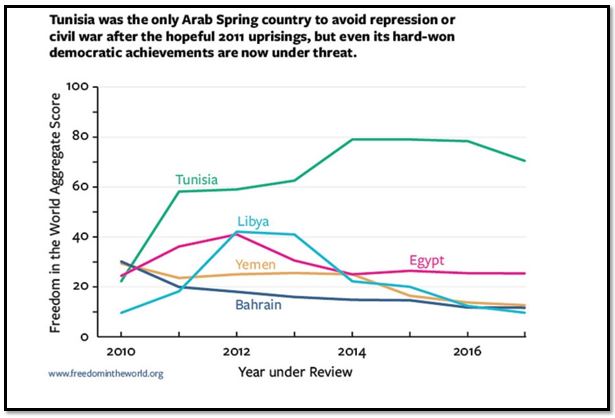 |
| [Freedom in the World Organization] |
The New Age of Arab Sectarianism
In her new book, “The New Sectarianism: The Arab uprisings and the Rebirth of the Shi’a-Sunni Divide”, Geneive Abdo whom I mentioned earlier points out that “the Arab uprisings brought identity and religion once again to the fore. A core issue in the post-Arab uprising era is the question: Who is a true believer and who is a nonbeliever? This exclusionist mind-set is most evident in the sectarian conflict between Shi’a and Sunni Muslims, which poses a serious threat to the stability of regional states and to stakeholders in the wider world, including the United States and its allies. (21)
If we subtract the Sunni-Shia rivalry from the geo-political equations in Syria, Iraq, Lebanon, Yemen, and Bahrain as well as the adjacent Saudi-Iranian show of force in these countries and beyond, the day-to-day management of local and regional politics would be less irrational, and the peace dividend would higher. The impact of deepening sectarianism is well-constructed in various political discourses across the region. Two years ago, Jamal Khashoggi, argued that "Sunnis" were targeted as a group and called on them to 'defend themselves as a sect. (22) Sociologist Rima Majed at the American University of Beirut acknowledges “sectarianism is real. It is neither a myth, nor an illusion. It is real in its implications and its revelations in our everyday life. (23) She argues, “The formation of "sects", as political groupings, is probably the results of sectarianism, or sectarian politics, and not its cause. (24) A growing number of scholars, including Vali Nasr and Geneive Abdo, predict the conflict between Sunnis and Shias will shape the future.
However, I argue sectarianism is one of several challenges to advancing toward an Arab age of modernity. The post-Arab uprisings years have become of a sour taste to the majority of Arabs who have changed their lexicon from Arab spring to Arab winter. Several complexities of Arab change are still lingering in the horizon and new questions are lurking in the larger picture: will these Uprisings lead to an institutionalization of Arab political freedoms, accountable and transparent politics, rationalization of the public sphere under the growing bottom-up forces of change vis-à-vis the declining power politics and traditional leadership? What are the prospects of modernity, democracy, and functionality of Arab institutions and societies in the years ahead? Al-Jabri illustrates how the relation between religion and the state, as it was transferred to the Arab sphere in the nineteenth and early twentieth centuries, “has not yet been acclimatized to suit the Arab intellectual and civilizational reality to a degree that makes it really expressive of the aspirations of that reality, and not the aspirations of the European reality from which it was transferred. (25)
Conclusion
The main challenge now is how Arabs reorganize the relationship between religion and state and who should be the guardian of whom. There are rebuttals of what Islamists, fundamentalists, or otherwise, mean by their principled interpretation that Islam is din wa dawla (that is religion and state). This brings us to the question: are the Uprisings an Averroist response to underdevelopment through the historical and civilizational connection with European Enlightenment philosophers like Immanuel Kant? Are they driven by a pursuit of an Arab enlightened modernity in a similar pattern of the French Revolution of 1789 which was energized by the Enlightenment values? Or will they reject such a projection and define their tanwiri (enlightenment) with their own integration of faith and reason, Sharia and democracy, and mosque and state?
As I wrote in my recent book, “the Enlightenment philosophy is anchored in the principle of rationalizing the relationship between state and religion, and calls for their separation. Kant argues that “a greater degree of civil freedom seems advantageous to a people's spiritual freedom; yet the former established impassable boundaries for the latter; conversely, a lesser degree of civil freedom provides enough room for all fully to expand their abilities. (26) However, both Kantianism and Averroesim do not draw clear lines for that separation which has remained quite blurry in all Enlightenment-based reorganizations of societies.”
Some scholars accentuate this transition, or a series of transitions, within modernization “from primitive, subsistence economies to technology-intensive, industrialized economies; from subject to participant political cultures; from closed, ascriptive status systems to open, achievement-oriented systems; from extended to nuclear kinship units; from religious to secular ideologies; and so on. (27) Accordingly, one needs to make a leap of the historical imagination to bring an eighteenth-century philosopher like Kant to reflect on the realities of the twenty-first-century Arab societies. The current public debates in the entire region from Morocco to Iraq; and also among Diasporas in distant continents pivot around freedom, human rights, and equal economic opportunities, and the advocacy of critical thinking. Kant stands out as the philosopher of freedom and "the possibility of freedom is the political question par excellence. (28)
There is also an Arab struggle with the freedom-from/freedom-to question that implies some challenges; how can Arabs shift from a descriptive freedom, which they were missing under their outgoing regimes, to an evaluative freedom under the post-Uprisings governments? After experimenting with the Uprisings, most Arabs are hesitant in front of the second part of the binary framework of the intended freedom: freedom to [positive freedom] after pushing for their freedom from [negative freedom]. This dyadic concept can be traced back to Kant’s works in the late eighteenth century, primarily The Metaphysics of Morals. It was also developed later by social psychologist Erich Fromm (1900-1980) in Escape from Freedom in 1941, and political theorist Isaiah Berlin [1909-1997) in his Two Concepts of Liberty lectures he delivered at Oxford University in 1958. Berlin defines liberty, in the negative sense, as “an answer to the question: 'What is the area within which the subject—a person or group of persons—is or should be left to do or be what he is able to do or be, without interference by other persons'. (29)
In retrospect, the post-Uprisings era will navigate through various tendencies of the new political actors toward a variety of fundamentalisms, neo-authoritarianisms, or modernities in formulating hopefully or resisting an Arab democracy theory. They will also face the challenge of an estimated time period before genuine change can materialize in sound structures, well-informed leaderships, and positive interaction between the bottom-up demands and expectations and top-down policies and capabilities in the region.
The future of Arab societies will be shaped by the outcome of what call the New Dialectic between Islamocracy and Demoslamic Politics. The oversimplification of “confrontation” between Islamism and secularism tends to overshadow the fifty-shade question of traditionalism within the Islamist discourse as well as that of modernity within the counter arguments. Still, non-Islamists remain Muslims maintaining their mainstream Islamic view of liberty, society, and state with an open mind for the civilizational transformation of global modernity.
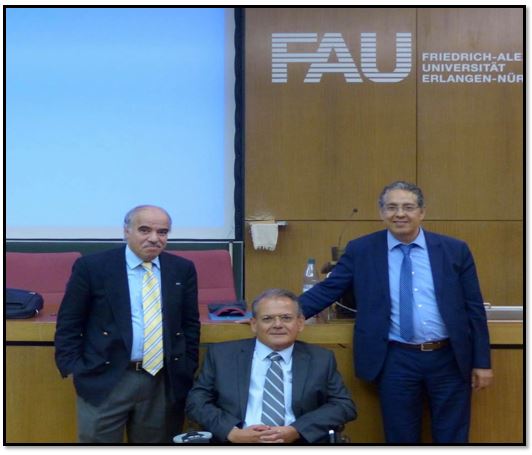 |
| From left: Mohammed Cherkaoui, George Tamer, Chair and Mohammed Nekroumi, Professor at Friedrich-Alexander-University Erlangen-Nürnberg. [Al Jazeera] |
(1) Reuters, “Amid Egypt Crisis, West Rethinks Its Arab Realpolitik”, February 6, 2011 https://www.haaretz.com/1.5118527
(2) Reuters, “Amid Egypt Crisis, West Rethinks Its Arab Realpolitik”, February 6, 2011 https://www.haaretz.com/1.5118527
(3) Mu Xuequan, “Egypt army kills 52 terrorists in raids in Sinai”, Xinhua, August 5, 2018 http://www.xinhuanet.com/english/2018-08/05/c_137369811.htm
(4) Jamal Khashoggi, “Read Jamal Khashoggi’s columns for The Washington Post”, the Washington Post, October 6, 2018 https://www.washingtonpost.com/news/global-opinions/wp/2018/10/06/read-jamal-khashoggis-columns-for-the-washington-post/?utm_term=.1d9cd711d81f
(5) Mohammad S. Moussalli, “Realpolitik: A Polished Name for Political Immorality”, August 21, 2014 https://arabiangazette.com/realpolitik-political-immorality-20140821/
(6) The White House, “Remarks by President Trump to the 73rd Session of the United Nations General Assembly - New York, NY”, September 25, 2018 https://www.whitehouse.gov/briefings-statements/remarks-president-trump-73rd-session-united-nations-general-assembly-new-york-ny/
(7) Mohammed Moussa, “Realpolitik, Failing States and the Arab Citizen”, Muslim Institute, https://musliminstitute.org/freethinking/politics/realpolitik-failing-states-and-arab-citizen
(8) Azar, Edward. The Management of Protracted Social Conflict: Theory & Cases, Aldershot, Dartmouth, 1990 p. 12.
(9) Azar, Edward. The Management of Protracted Social Conflict: Theory & Cases, Aldershot, Dartmouth, 1990 p. 16.
(10) Azar, Edward. The Management of Protracted Social Conflict: Theory & Cases, Aldershot, Dartmouth, 1990 p. 7.
(11) Kumaraswamy, P R. “Who Am I? The Identity Crisis in the Middle East”, Middle East Review of International Affairs, Vol. 10, No. 1 (March 2006)
(12) Stefan Buchen, “What is left of the Arabs?”, Qantara.de, https://en.qantara.de/content/arab-identity-crisis-what-is-left-of-the-arabs
(13) Peter R. Demant, “Islam vs. Islamism: The Dilemma of the Muslim World”, Praeger, 2006
(14) Vamik Volkan, ”Large-Group Identity, Large-Group Regression and Massive Violence”, July 2, 2005 version http://freudconference.com.au/online_papers/Large-Group_Identity.pdf
(15) Vamik Volkan, ”Large-Group Identity, Large-Group Regression and Massive Violence”, July 2, 2005 version http://freudconference.com.au/online_papers/Large-Group_Identity.pdf
(16) Volkan, V. D. and Itzkowitz, N. “Turks and Greeks: Neighbors in Conflict”, Cambridgeshire, England: Eothen Press. 1994
(17) Volkan, V.D. “Blind Trust: Large Groups and Their Leaders in Times of Crises and Terror”, Charlottesville.VA: Pitchstone Publishing, 2004
(18) Vamik Volkan, ”Large-Group Identity, Large-Group Regression and Massive Violence”, July 2, 2005 version http://freudconference.com.au/online_papers/Large-Group_Identity.pdf
(19) Vamik Volkan, ”Large-Group Identity, Large-Group Regression and Massive Violence”, July 2, 2005 version http://freudconference.com.au/online_papers/Large-Group_Identity.pdf
(20) Mohammed Cherkaoui, “‘Muslims’, ‘Islamists’, and ‘Islamics’: The Dilemma of ‘Sacred’ Interpretation”, Confrontations, May 21, 2010 https://solonsimmons.wordpress.com/2010/05/21/muslims-islamists-and-islamics-the-dilemma-of-sacred-interpretation/
(21) Geneive Abdo, “Egypt: The Religious Root of Conflicts in the Middle East”, Pulitzer Center, February 5, 2017 https://pulitzercenter.org/reporting/egypt-religious-root-conflicts-middle-east
(22) Rima Majed, “In the Arab world, sectarianism is real, sects are not”, Aljazeera, October 16, 2016 https://www.aljazeera.com/news/2016/10/arab-world-sectarianism-real-sects-161012110949666.html
(23) Rima Majed, “In the Arab world, sectarianism is real, sects are not”, Aljazeera, October 16, 2016 https://www.aljazeera.com/news/2016/10/arab-world-sectarianism-real-sects-161012110949666.html
(24) Rima Majed, “In the Arab world, sectarianism is real, sects are not”, Aljazeera, October 16, 2016 https://www.aljazeera.com/news/2016/10/arab-world-sectarianism-real-sects-161012110949666.html
(25) Al-Jabri, Mohammed Abed. “Democracy, Human Rights and Law in Islamic Thought,” I. B. Tauris Publishers, 2009, p. 32.
(26) Kant, Immanuel. ‘An Answer to The Question: What is Enlightenment? (1784) http://www.english.upenn.edu/~mgamer/Etexts/kant.html
(27) Tipps, C. Dean. “Modernization Theory and the Comparative Study of Societies: A Critical Perspective,” Comparative Studies in Society and History, Vol. 15, No. 2 (March, 1973), pp. 199-226.
(28) Ellis, Elizabeth (ed.) (2012) Kant’s Political Theory: Interpretations and Applications, The Pennsylvania State University Press, p. 6.
(29) Berlin, Isaac. “Two Concepts of Liberty” In Isaiah Berlin (1969) Four Essays on Liberty, (Oxford University Press, 1969).
